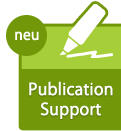| Biological Sciences and Medicine |
 |
 |
| Armed with a doctorate in botany, this editor has a lifetime of achievements to his name-as a vice-president, science technician, and senior scientist. The knowledge amassed over the years enables him to accurately deal with a variety of subjects. |
|
| |
 |
Could you please tell us why you decided to become an editor? |
| |
In my professional career, I have supervised scientists, and have worked for government agencies and universities. When I retired, editing seemed like the perfect choice! |
| |
|
 |
Your career as an editor has only started recently, right? |
| |
No, I have been editing for a very long time now. I have reviewed and edited scientific papers for many years; I would say for at least 20. Apart from my specialization, I deal with papers belonging to very interesting and diverse subjects, from ecology to agriculture to medicine. |
| |
|
 |
So, why would you choose freelancing over a regular 9-to-5 job? |
| |
Well, now that I am retired, I can receive Social Security from the United States government. Also, I can receive only a limited amount of money if I work for someone else. On the other hand, freelancing offers me the opportunity of working while being anywhere in the world. Imagine the possibilities! |
| |
|
 |
Do you get manuscripts from non-native speakers or only from native speakers? |
| |
From both; I have edited for a number of Chinese, Japanese, and Egyptian scientists working at the University of Hawaii, for whom English is not a native language.
I think that the most frequent errors occur in long sentences-compound and complex sentences that are difficult for readers to understand. Yes, it is always better to employ short and declarative sentences with a simple subject and/or object. |
| |
|
 |
How do you actually go about editing manuscripts? |
| |
My process involves first reading the entire article, keeping in mind the overall meaning and context. Next, I look at each paragraph-each paragraph should have an initial sentence that states what that paragraph is about. I check the integrity of each paragraph to see if there is a new thought or idea or something that is being explained through the paragraph, and whether it is being expressed accurately. Next, I go through the sentences in terms of their structure and try to simplify or clarify their meaning. Finally of course, I check for any typographical errors or misspellings. |
| |
|
 |
In your opinion, can anyone whose native language is English, and who has a sound editing strategy, become an editor? |
| |
I do not think everyone can become an editor. Editing requires a sense of language and great attention to detail. Few people have such skills. Also, the editor must enjoy writing. Some people think that brushing up sentences written by others is a small thing, but it is not so.
I am always careful not to kill the author's voice. I clear up the author's meaning and make it easier for readers to understand, while keeping the author's style intact. A balance between these two seemingly contradictory goals can only be achieved by specialists who have received adequate training. And, it goes without saying that keeping oneself updated about the latest happenings in one's area of expertise at all times is a must for all good editors. |
| |
|
 |
How do keep yourself abreast of the latest happenings in a highly specialized area such as yours? |
| |
I spend most of the day reading books or writing on topics related to my field of expertise. In the meantime, I am working on a non-fiction book called "What's wrong with my plant," which will be published by Timber Press, the leading horticultural publisher in the U.S.
The book is about diagnosing plant diseases; so, I spend a considerable part of the time reading related reference material. It will be of help to anybody who intends to grow plants, either in their homes or in their gardens or yards. It will help you gain knowledge of various problems experienced by plants, such as those related to their nutrition and environment, excess sunlight, too little water, attacks by insects, diseases, etc.
I will be happy if I can continue to edit for 3-4 hours a day, and then indulge in activities like bird watching, hiking, and gardening. I would like to continue to live such a life. |
|
| |
Note that the views expressed on this page are of the person interviewed and do not necessarily reflect the views of Enago as a company. Please contact feedback@enago.com if you have any questions regarding the content of this interview. |




